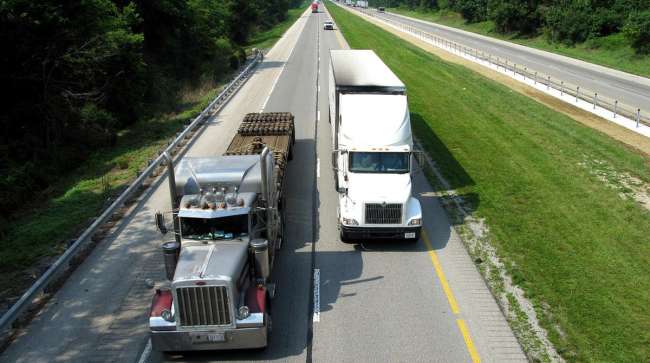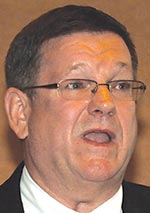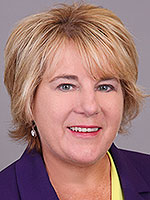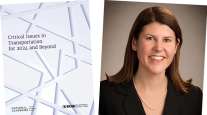Senior Reporter
Federal Trucking Regulators to Detail Priorities for 2018 at TRB

Federal trucking regulators will offer updates on their safety priorities and regulatory actions planned for 2018 during the Transportation Research Board’s annual conference, scheduled to take place Jan. 7-11 in Washington, D.C.
Among the highlights for trucking, on Jan. 9 the Federal Motor Carrier Safety Administration’s chief safety officer, Jack Van Steenburg, will detail the progress of an effort to update the Compliance, Safety, Accountability performance scoring program. Officials familiar with the conference told Transport Topics the CSA discussion will educate stakeholders on new guidelines.

The CSA program’s methodology was subjected to an independent review conducted by the National Academy of Sciences, which recommended FMCSA proceed with an “item response theory” methodology approach, meaning a system designed to improve crash data through collaboration with states and agencies and a user-friendly data file for performance scores.
FMCSA must provide Congress with a report detailing how it plans to adopt the National Academy of Sciences’ recommendations. Transportation leaders on Capitol Hill may issue recommendations based on FMCSA’s report.

Van Steenburg
Under CSA now a nonpreventable crash for a motor carrier will be displayed on the agency’s Safety Measurement System website with the notation: “FMCSA reviewed this crash and determined that it was not preventable.” For a preventable crash, the notation will read: “FMCSA reviewed this crash and determined that it was preventable.”
The National Academy of Sciences report said the collection of vehicle miles traveled, driver turnover rates and driver pay would help paint a more precise picture of a carrier’s safety culture,

Brewster
Agency officials also intend to discuss the mandate on electronic logging devices, which took effect Dec. 18. FMCSA held forums nationwide to educate the industry about the mandate, which requires most drivers to record their hours of service via the devices.
FMCSA also will address truck platooning, a concept under which a lead truck controlled by a driver is electronically tethered to trucks that can follow it without drivers. The agency did not elaborate on the details of their presentations.
Proponents of platooning argue fuel savings would be realized as a result of reductions in wind drag. Federal lawmakers are evaluating the technology.
The conference also will feature a presentation from Rebecca Brewster, president of the American Transportation Research Institute. The institute recently determined a federal fuel tax increase would be the most ideal option for funding large-scale infrastructure programs nationwide. In November, ATRI concluded “an increase in federal transportation revenue can efficiently occur if the federal government can develop a multifaceted, equitable and long-term funding program.”
Congress and the White House intend to take up President Trump’s 10-year, $1 trillion infrastructure funding plan in 2018, and the federal fuel tax is expected to be included in the discussion. Trump’s infrastructure team has not ruled out calling for an increase in fuel taxes.
On Jan. 10, the TRB executive committee will present the Sharon D. Banks Award recognizing innovative and successful leadership in people-oriented initiatives in transportation to William Millar. As the former president of the American Public Transportation Association, Millar helped improve transportation accessibility, the awards committee said. Of note, Millar worked with the disability community to develop practical services and facilities before the enactment of the Americans with Disabilities Act.
The TRB 97th meeting will be held at the Walter E. Washington Convention Center in Washington, D.C. More than 12,000 participants are expected to attend. According to organizers, the conference’s theme for 2018 will be “Transportation: Moving the Economy of the Future.”




